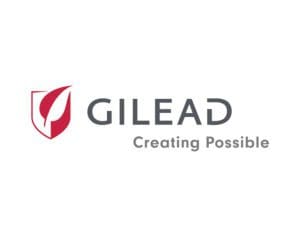 Biotech firm Gilead Sciences is on the defensive as its revenue surges thanks to the COVID-19 drug Veklury, better known as remdesivir.
Biotech firm Gilead Sciences is on the defensive as its revenue surges thanks to the COVID-19 drug Veklury, better known as remdesivir.
Several press outlets are skeptical of the promise of remdesivir, the first COVID-19 treatment to win FDA approval.
This week, Healthline questioned whether FDA should have approved the drug.
The New York Times recently declared that the drug is “mediocre.” Science went further by stating that the drug had a “very, very bad look.” The decision of FDA and E.U. officials to clear the way to the widespread use of the drug have “baffled scientists” who have kept tabs on clinical trials for the antiviral for the past six months, accordion to Science.
In August, Medscape editor Eric Topol questioned FDA’s August 28 decision to approve the drug for treating patients with moderate COVID-19. “There are insufficient data to support this approval, as it is based on small, open-label studies with subjective endpoints,” Topol wrote.
And recently, NIH halted a trial that paired remdesivir with Eli Lilly’s monoclonal antibody LY-CoV555 (bamlanivimab) for hospitalized patients.
Remdesivir, initially developed as a treatment for Ebola and the Marburg virus, had failed to gain traction for treating those infections.
Now, one of the largest controlled studies involving the drug — the World Health Organization’s Solidarity trial — published initial data suggesting that remdesivir does not reduce mortality or improve the speed of COVID-19 recovery.
Gilead refuted that conclusion on its website: “The emerging data appear inconsistent with more robust evidence from multiple randomized, controlled studies published in peer-reviewed journals validating the clinical benefit of [remdesivir].”
Gilead’s chief medical officer, Merdad Parsey, has questioned the Solidarity trial, according to FT.
The company went on to assert that remdesivir’s benefits have been “demonstrated in three randomized, controlled clinical trials, including a randomized, double-blind, placebo-controlled clinical trial.”
In interim results, the Solidarity trial organizers concluded that remdesivir as well as hydroxychloroquine, lopinavir/ritonavir and interferon have “little or no effect on overall mortality, initiation of ventilation and duration of hospital stay in hospitalized patients.”
In a press release, FDA supported its decision to approve remdesivir based on its analysis of data from three randomized, controlled studies involving patients hospitalized with mild-to-severe COVID-19 infections. In one of those studies, patients treated with remdesivir recovered in 10 versus 15 days for the placebo group. The agency also posted a summary review summarizing the data behind its approval decision.
It also published a FAQ that discusses the Solidarity trial and how it differed from the three studies that led to remdesivir’s approval. A randomized, placebo-controlled, double-blinded study known as ACTT-1 was “better suited to rigorously assess a time to recovery endpoint compared to a trial with an open-label design, such as the SOLIDARITY trial,” it stated. “Based on the findings of the ACTT-1 trial, benefit to patients for Veklury was demonstrated, including a shorter time to recovery and better odds of clinical improvement. The SOLIDARITY results do not refute these findings of benefit to patients.”
Filed Under: clinical trials, Drug Discovery, Drug Discovery and Development, Infectious Disease





Tell Us What You Think!
You must be logged in to post a comment.